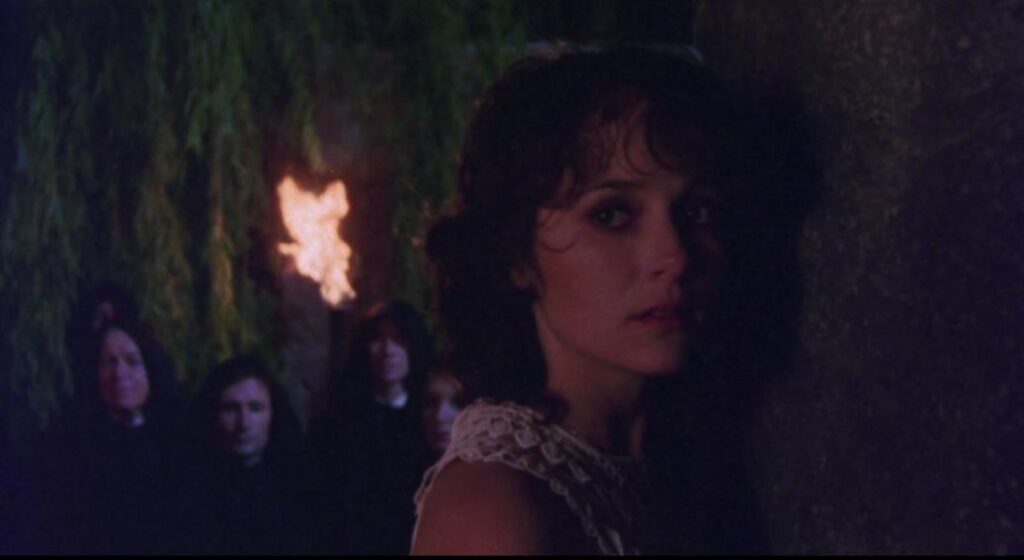
As Alison’s (Joanne Samuel) nineteenth birthday draws near she begins to suspect that there is more to her beloved aunt and uncle (Bunney Brooke and John Bluthal) than she originally thought. While Alison becomes increasingly paranoid, her boyfriend Peter (Lou Brown) sets out to uncover the truth about a pagan cult, human sacrifice and supernatural powers that may all be linked to Alison’s family.
Ian Coughlan’s Alison’s Birthday (1981) is a folk horror film in the tradition of The Witches (1966), Robin Redbreast (1970) and The Wicker Man (1973). Alison is just another in a chain of protagonists who have found themselves at the center of a conspiracy; sacrificial lambs ignorant of all the warning signs and their true purpose. It’s an affective premise that exploits the doubts inherent in any relationship, familial or otherwise, as well the collective fear of the unknown which, in these instances, is pagan theology.
Coughlan’s direction is workman-like though not extraordinary. Some of the visual compositions and practical special effects are, in his defense, hampered by a very modest budget. Alison’s Birthday looks and feels like an episode of Hammer House Of Horror (1980). The film is still able to frighten though and Brian King’s music aids in this by creating a remarkably macabre atmosphere.
Alison’s Birthday is a solid entry in the folk horror movie cannon even if it is not a radical one. Students of film will find plenty to borrow from Coughlan’s film in terms of making a horror picture that can engage an audience on multiple levels with a small budget. Perhaps of greater interest is how Alison’s Birthday effected the production and release of two other Australian folk horror features; Celia (1989) and The Dreaming (1988).
Besides their obvious genre conventions these films each open a discourse with Australia’s legacy as a colony. As is the case with American folk horror features the narratives of these Australian counterparts are concerned either with the retribution of indigenous peoples or the resurgence of European tradition. Alison’s Birthday deals explicitly with the latter concept, proposing that, as a colonial port, Australia was a haven for Europe’s discarded religious radicals and criminals.
